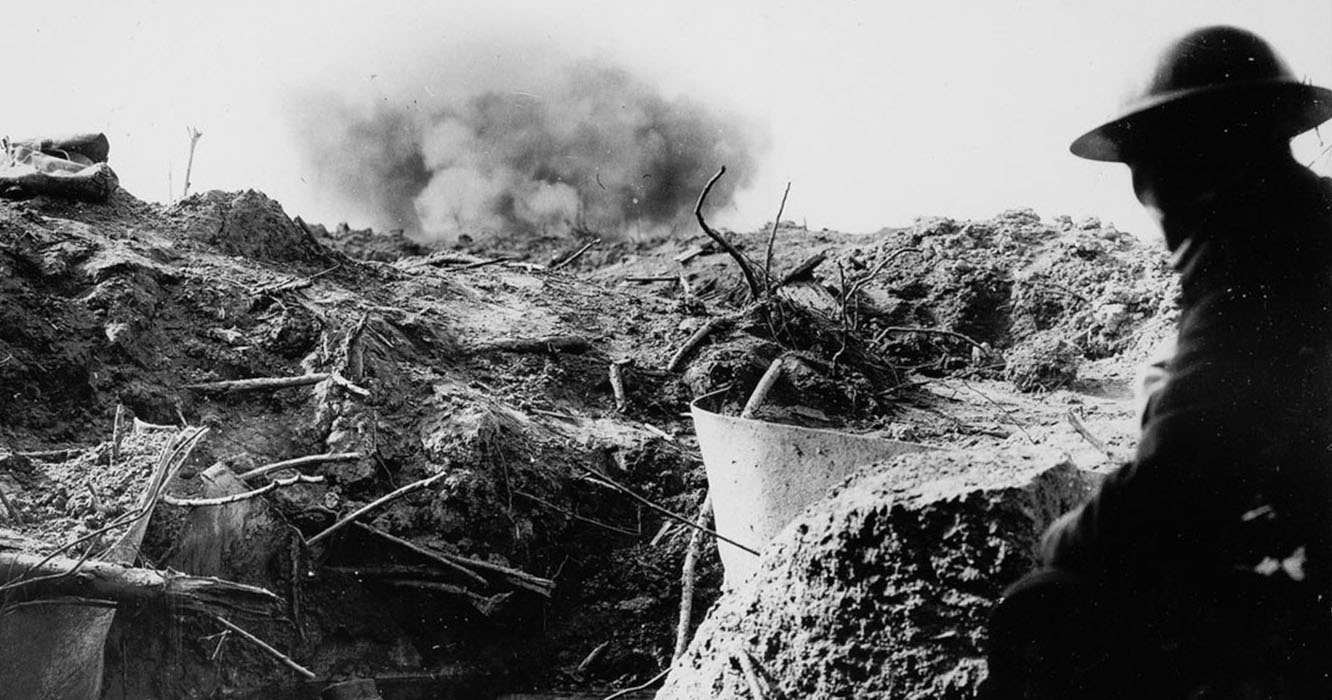
Exposure
I
Our brains ache, in the merciless iced east winds that knife us...
Wearied we keep awake because the night is silent...
Low, drooping flares confuse our memory of the salient...
Worried by silence, sentries whisper, curious, nervous,
But nothing happens.
Watching, we hear the mad gusts tugging on the wire,
Like twitching agonies of men among its brambles.
Northward, incessantly, the flickering gunnery rumbles,
Far off, like a dull rumour of some other war.
What are we doing here?
The poignant misery of dawn begins to grow...
We only know war lasts, rain soaks, and clouds sag stormy.
Dawn massing in the east her melancholy army
Attacks once more in ranks on shivering ranks of gray,
But nothing happens.
Sudden successive flights of bullets streak the silence.
Less deadly than the air that shudders black with snow,
With sidelong flowing flakes that flock, pause and renew,
We watch them wandering up and down the wind's nonchalance,
But nothing happens.
II
Pale flakes with fingering stealth come feeling for our faces—
We cringe in holes, back on forgotten dreams, and stare, snow-dazed,
Deep into grassier ditches. So we drowse, sun-dozed,
Littered with blossoms trickling where the blackbird fusses.
Is it that we are dying?
Slowly our ghosts drag home: glimpsing the sunk fires, glozed
With crusted dark-red jewels; crickets jingle there;
For hours the innocent mice rejoice: the house is theirs;
Shutters and doors all closed: on us the doors are closed—
We turn back to our dying.
Since we believe not otherwise can kind fires burn;
Nor ever suns smile true on child, or field, or fruit.
For God's invincible spring our love is made afraid;
Therefore, not loath, we lie out here; therefore were born,
For love of God seems dying.
Tonight, this frost will fasten on this mud and us,
Shrivelling many hands, puckering foreheads crisp.
The burying-party, picks and shovels in their shaking grasp,
Pause over half-known faces. All their eyes are ice,
But nothing happens.
The winter of 1917, the inspiration for this poem, was an exceptionally cold one across Europe. The men of the front (infamously undersupplied) bore the full brunt of record snowfalls and dangerous temperatures. As echoed in this poem, many men must have wondered why they had been moved into foreign trenches far from family and home, only to be left to freeze.
Written a little over two years into the conflict, the horror and resignation of Owen’s poem reflect bitterly on the fact that for nearly two more years the men of the front (and the rest of the world) would continue to suffer. Abandoned and desolate in a wasteland of frost and freezing mud, the figures in this poem are ghosts only able to wonder at their fate. The last line, often repeated, is more a complaint than a hope—yet many thousands were still to die.
